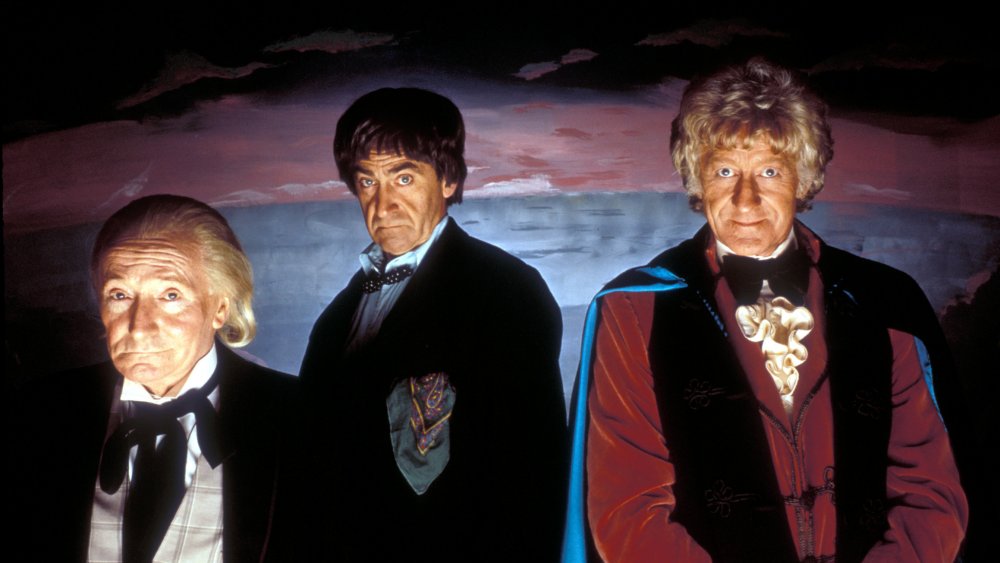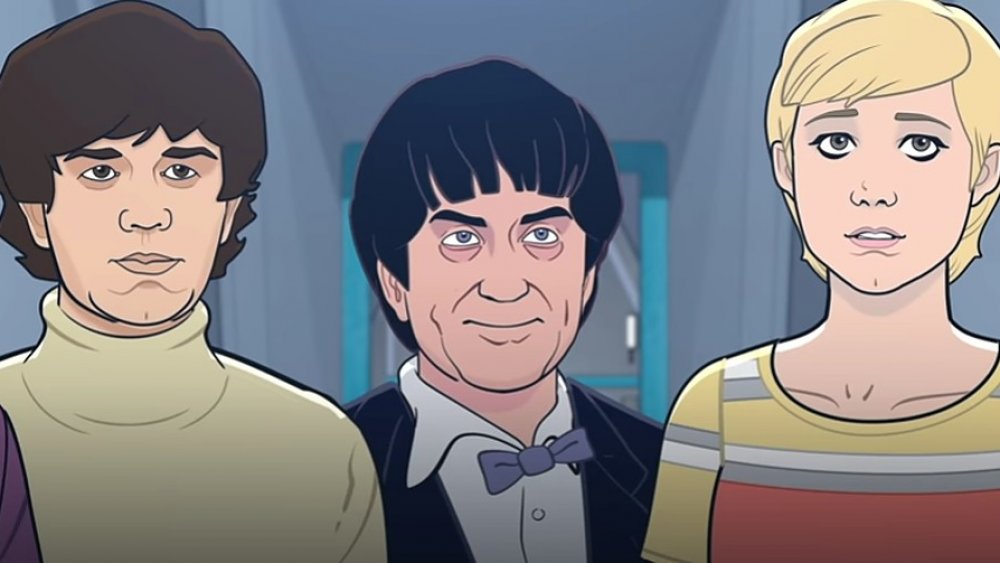Why We'll Never Be Able To Watch Every Doctor Who Episode
One of the greatest things about Doctor Who is its staying power. Created by Sydney Newman and debuting in 1963, fans of the BBC science fiction series have been able to follow the Doctor's many regenerations and companions across time and space for decades and more than 850 episodes.
That deep catalog gives longtime fans plenty to rewatch and reexamine, while new fans are offered a seemingly never-ending well of adventures, the latest of which will now be led by the first black doctor. Much of Doctor Who's library is also relatively easy to get your hands on. BBC streams the latest series and specials, while older seasons can be viewed with a Britbox subscription, or purchased on DVD or through digital downloads. But there are quite a few early episodes that aren't just hard to get your hands on — they're impossible to find anywhere.
These are known as the "lost episodes," and in the '80s, the total amount of missing tapes was in the triple digits. More recent estimates now put that number somewhere above 90, due in part to various restoration and collection efforts. Back in 2013, the BBC was able to release nine restored episodes, thanks to Television International Enterprises Archives media recovery specialist Phillip Morris and Paul Vanezis, a member of TIEA's Doctor Who restoration team. Found in a Nigerian TV studio and not seen in more than 40 years, the series titled "The Enemy of the World" was completed, and the "Web of Fear" storyline is now only missing a single episode instead of five (via BBC).
Doctor Who has proven itself to be a time-tested and beloved series, so how did these episodes get lost?
The BBC didn't always value its media archives
The celebrated nine recovered episodes were found in a storeroom, but that's not the case for all of the missing stories. While some may be in the hands of broadcasters who received them from the BBC ages ago, more were likely destroyed.
A lot of the missing content is from the First and Second Doctor eras, with 58 out of the Second Doctor's total 127 episodes still lost. It's believed that most of these fell victim to the British broadcaster's poor archiving habits. Back in the '60s and '70s, before film went digital and there were backup hard drives, the BBC routinely erased old tapes to make way for new recordings. That was due in part to broadcast filming being treated more like a production tool, and less as an archiving mechanism. Plus, many areas lacked rebroadcasting rights or the storage space to keep old tapes, not to mention the general scarcity and costly nature of tape back then.
"I think a really important point to remember is that videotape was not seen as an archive medium, not as a long-term carrier for the television picture," BBC archivist Adam Lee told Today I Found Out. "They saw it as something that was transmitted, went out live, and was finished."
Much of what got "deleted" was believed then to have little to no value going forward, with shows filmed in black and white — which included 253 Doctor Who episodes — becoming regular targets. With Doctor Who being such a cultural touchstone, the erasure of so many episodes seems particularly egregious, but the decision wasn't made with malice. NASA and the BBC also famously erased the Apollo 11 moon landing footage for the same reasons.
The BBC has attempted to recreate the lost footage with animated episodes
Some former BBC employees and collectors have gotten their hands on old episodes at various points. The recovered episodes of "The Dalek Master Plan," "Evil of the Daleks," "The Wheel in Space," "The Abominable Snowman," and "Invasion of the Dinosaurs" are counted among those that came directly from private individuals. Tapes recovered in this manner are either purchased from the collector, or copied with the their permission.
It's believed that there are more lost Doctor Who episodes out there that may be in the hands of individuals, but Vanezis told the Radio Free Skaro podcast that there are probably fewer of these than one might think. "I don't want to make it sound like there are lots of missing tins of Doctor Who out there that I know about," Vanezis said. "You know, we're talking about one or two episodes" (via Gizmodo).
Recovering old Doctor Who episodes in their totality has been hard, and much of what's still missing may never be recovered, but there is one way for fans to experience some of the missing installments. Unlike much of the erased footage of the BBC's archive, all 97 of the currently missing Doctor Who episodes are available in audio form. To give fans the chance to see these stories, the BBC made animated versions of lost episodes beginning in 2006, as a way to finish out arcs that were only missing one or two stories. Now, the British broadcaster has taken to animating entire lost stories, including the Second Doctor's first story, "The Power of the Daleks," and, most recently, "The Faceless Ones."
While what's lost can't always be found, sometimes, it can be recreated — and for that Doctor Who fans have reason to be grateful.


